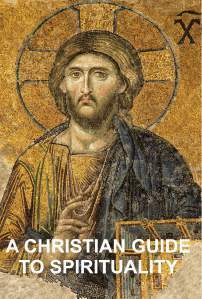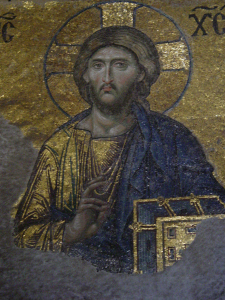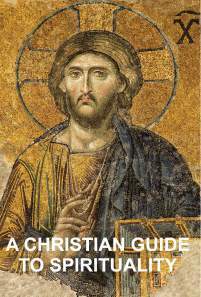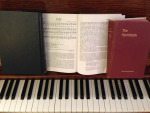Stephen W. Hiemstra's Blog, page 275
December 8, 2014
Honra El Nombre (El Tercera Mandamiento)

Photo by Stephen W. Hiemstra
“No tomarás el nombre del SEÑOR tu Dios en vano, porque el SEÑOR no tendrá por inocente al que tome Su nombre en vano.” (Exod 20:7 NBH)
Por Stephen W. Hiemstra
Hace muchos años, cuando estudiaba en Alemania, tuve un compañero de Bélgica quien conocía solo por su nombre de familia. Cuando le pregunté a su alrededor, ni siquiera la secretaria del departamento sabía su nombre de pila. Su primer nombre fue reservado para la familia y nadie más.
Dios es también sensitivo acerca de su nombre y cómo se utiliza (Ezek 36:20-23).
En el Hebreo del Antiguo Testamento, hay muchos nombres para Dios. El nombre de pacto, YHWH, cual Dios dio a Moisés desde la zarza ardiente, es sagrado para los Judíos. Cuando los Judíos se encuentran con YHWH en las escrituras, sustituyan normalmente la palabra Adonaí que significa Señor. La mayoría de traductores honra esta tradición. Por lo contrario, el nombre genérico de Dios en Hebreo es Elohim que está, por ejemplo, la palabra para Dios usó en Génesis 1:1.
El tratamiento del nombre de Dios es un extensión de la santidad de Dios. Santo medios tanto ser apartado y la idea de sagrado. El tabernáculo, y mas tarde el templo en jerusalén, se construyó para observar tres niveles de aumento de la santidad: la Patio para Judíos, el Lugar Santo para sacerdotes, y el Santo de los Santos para el sumo sacerdote—pero sólo por el Día de Expiación (Exod 30:10). El Arca de la Alianza residía en el Santo de los Santos.
Aunque la sistema Judío de sacrificio termino con la destrucción del templo en ano 70, el nombre de Dios queda todavía santo. El Apóstol Pablo, por ejemplo, escritó:
Y hallándose en forma de hombre, se humilló El mismo, haciéndose obediente hasta la muerte, y muerte de cruz. Por lo cual Dios también Lo exaltó hasta lo sumo, y Le confirió el nombre que es sobre todo nombre, para que al nombre de Jesús SE DOBLE TODA RODILLA de los que están en el cielo, y en la tierra, y debajo de la tierra, y toda lengua confiese que Jesucristo es Señor, para gloria de Dios Padre. (Phi 2:8-11 NBH)
Por lo tanto, el mandamiento no a profanar el nombre de Dios es uno a ser tomar en serio. El autor de Proverbios escribe: “El temor del (La reverencia al) SEÑOR es el principio de la sabiduría; Los necios desprecian la sabiduría y la instrucción.” (Prov 1:7 NBH) Honramos a Dios, absteniéndose de lenguaje vulgar y se niega a hacer promesas vacías apalancadas en el nombre de Dios.
Pero que honra el nombre de Dios es más que meramente no que usa lengua malo. Nuestra conducta debe traer honor a Dios—nuestra acciones debe ser consistente con la fe que profesamos (Jas 2:17).
Una de las mayores recompensas en el cielo es simplemente a llevar el NOMBRE (Rev 22:4). ¿Por que no empezamos ahorita?

December 7, 2014
Prayer Day 6: A Christian Guide to Spirituality by Stephen W. Hiemstra

Available on Amazon.com
Heavenly Father. We praise you for shepherding us and resting with us in lush gardens. Feed our hungering and thirsting souls as we confront sickness and death. Shelter us in your strong arms as we shelter the weak among us. Prosper us in righteousness as we model your love to those around us. Grant us your mercy through the storms of life until you lead us home (Ps 23). In the name of the Father, the Son, and the Holy Spirit, Amen.
Padre Celestial. Te alabamos por pastoreando nos y descansando en medio de exuberantes jardines. Alimentar nuestras almas hambre y sed cuando nos enfrentamos con la enfermedad y la muerte. Da nos refugio en tus brazos fuertes mientras nos damos refugio a los débiles entre nosotros. Da nos tu misericordia a través de las tormentas de la vida hasta que nos llevamos a casa (Ps 23). En el nombre del Padre, el Hijo, y el Espíritu Santo, Amen.

December 5, 2014
Make No Images (Second Commandment)

Artwork by Narsis Hiemstra
You shall not make for yourself a carved image, or any likeness of anything that is in heaven above, or that is in the earth beneath, or that is in the water under the earth. You shall not bow down to them or serve them, for I the LORD your God am a jealous God, visiting the iniquity of the fathers on the children to the third and the fourth generation of those who hate me, but showing steadfast love to thousands of those who love me and keep my commandments. (Exod 20:4-6; Deut 5:8-10)
By Stephen W. Hiemstra
Did you ever wait until the second time your mother called (as if her intent were unclear) before responding? Why? Repetition implies emphasis. In Hebrew poetry we see a special kind of repetition where the first and second sentences say the same thing just in different words. A good example of a Hebrew doublet is found in Psalm 115, where we read:
“Our God is in the heavens; he does all that he pleases.Their idols are silver and gold, the work of human hands. They have mouths, but do not speak; eyes, but do not see.” (Ps 115:3-5)
The comparison is between God, who is alive (lives in heaven; does what he pleases), and idols, which are not alive (made of metal by humans; have silent mouths and useless eyes).
The problem of idol worship runs deep in the human psyche. An idol is anything that we treat as more important than God. And we have many such things—family members, friends, work, school, political leaders, pop stars, sports heroes, philosophies, bank accounts, insurance policies, health plans—the list is endless.
Louie Giglio (2003, 113), a Christian musician, says that if you want a list of the idols in your life, ask where you spend your money, your time, your energy, and your loyalty. Check out your priorities and you will find the idols that threaten your faith, your mental health, and, perhaps, your life.
The second commandment is not about God’s vanity. When we put our faith in idols, we set ourselves up for a hard fall. All idols eventually break and, when they do, we break with them. The outcome of our brokenness often results in depression, addiction, or suicide; collectively, it results in oppression, injustice, and war.
The obsession in our society with work and “having it all”, for example, leads us to abuse our own health and to undervalue anyone who does not work. Instead of valuing time with our family, we refuse to use our vacation leave and we return to work even before we have to. Instead of relaxing or exercising when we are off from work, we bring work home and make poor food choices. Instead of seeing our young people and senior citizens as created in the image of God, we see them as “dependents” who do not work. It is not surprising, therefore, that they develop self-image problems and depression, or worse.
Substitutes for the living God’s role in our life are cheap imitations.
REFERENCES
Giglio, Louie. 2003. The Air I Breathe. Colorado Springs: Multnomah Press.

No Haga Imágenes (El Segundo Mandamiento)

Artwork by Narsis Hiemstra
“No te harás ningún ídolo (imagen tallada), ni semejanza alguna de lo que está arriba en el cielo, ni abajo en la tierra, ni en las aguas debajo de la tierra. “No los adorarás (No te inclinarás ante ellos) ni los servirás (ni los honrarás). Porque Yo, el SEÑOR tu Dios, soy Dios celoso, que castigo la iniquidad de los padres sobre los hijos hasta la tercera y cuarta generación de los que Me aborrecen, y muestro misericordia a millares, a los que Me aman y guardan Mis mandamientos. (Exod 20:4-6; Deut 5:8-10 NBH)
Por Stephen W. Hiemstra
¿Alguna vez se espera hasta la segunda vez que su madre llamó (como si su intención fuese ni claro) antes de responder? ¿Porque? Repetición implica énfasis. En poema hebreo vemos un clase especial de repetición donde la primera y la segunda frases dice la misma cosa pero en palabras diferente. Un ejemplo de un doble hebreo se encuentra en Salmo 115, donde leemos:
“Nuestro Dios está en los cielos; El hace lo que Le place. Los ídolos de ellos son plata y oro, Obra de manos de hombre. Tienen boca, y no hablan; Tienen ojos, y no ven;” (Psa 115:3-5 NBH)
La comparición es entre Dios, quien está vivo (vive en el cielo; lo hace que le place), y ídolas, que no están con vida (hecho de metal por manos humanos; tienen bocas mudas y los oyos inútiles).
El problema de la idolatría es profunda en la psique humana. Un ídolo es cualquiera cosa que tratamos como más importante que Dios. Y tenemos muchas de estos—miembros de la familia, compañeros, trabajo, escuela, lideres políticos, estrellas popular, héroes deportivos, filosofías, cuentas bancarias, pólizas de seguros, planes de salud—las listas son enormes.
Louie Giglio (2003, 113), un músico cristiano, dice que si deseas una lista de los ídolos en tu vida, pregunta en qué gastas tu plata, tu tiempo, tu energías, y tu lealtad. Echa un vistazo a tu prioridades y encontraras los ídolos que amenaza tu fe, tu salud mental, y, tal vez, tu vida.
La mandamiento segundo no es acerca de la vanidad de Dios. Cuando ponemos nuestra fe en ídolos, nos preparamos para una dura caída. Todos los5 ídolos eventualmente se rompen y cuando lo hacen, que rompen con ellos. El resultado de nuestro quebrantamiento a menudo resulta en depresión, adicción, o suicidio; colectivamente, da lugar a opresión, injusticia, y guerra.
La obsesión en nuestra sociedad con trabajo y “tenerlo todo”, por ejemplo, nos conducimos a abusar nuestra propia salud y a despreciar alguien quien no trabaja. En lugar de que valorar tiempo con nuestra familia, nos negamos a usar nuestros tiempo de vacaciones y regresamos a trabajar aun antes tenemos que. En lugar de para relajarse o ejercer cuando somos fuera de la obra, nos traemos la obra a casa y hacer la elección de alimentos pobres. En lugar de que ver nuestro jóvenes y ancianos como creado en la imagen de Dios, los vemos como dependientes quien no trabajan. Entonces no es de extrañar que ellos se desarrollen problemas de auto-imagen y depresión, o aun cosas más peores.
Substitutos para la función del Dios viviendo en nuestra vida son imitaciones baratas.
REFERENCIAS
Giglio, Louie. 2003. The Air I Breathe. Colorado Springs: Multnomah Press.

December 3, 2014
No Other Gods (First Commandment)

Hagia Sophia (iStockPhoto.com)
“You shall have no other gods before me.” (Exod 20:3; Deut 5:7)
By Stephen W. Hiemstra
Why does God claim exclusive right to our allegiance and forbid worship of other gods?
God’s sovereignty over our lives arises from his role as creator. Did we do anything to earn our creation? No. Our first independent act after God created us was in fact to sin and rebel against God’s only law—do not eat of the tree (Gen 2:17). Did we do anything to earn God’s restoration and salvation? No—God himself paid the penalty of our sin in sending his son to die on a cross on our behalf.
God’s permits only one path to salvation—through Jesus Christ. We cannot approach God on our own. Two reasons suggest why.
The first reason arises because of God’s eternal nature—God stands outside of time. God’s infinite nature implies that he can approach us, but we cannot approach him. Think of the problem of setting a meeting date with an eternal God—maybe God’s convenient date is 30 AD or maybe 3000 AD. How exactly are we to show up or even arrange the date? The apostle Paul writes: “For while we were still weak, at the right time Christ died for the ungodly.” (Rom 5:6)
The second reason arises because of God’s Holy nature. Holy implies sacred or set apart. God is holy; we are not. God’s holiness precludes us from approaching him on our own.
Because we cannot approach God on our own, either physically or morally, a hidden path to God outside of Christ logically does not exist. In fact, the idea that a hidden path to God exists ignores both of the above problems and focuses on three misconceptions about God’s holiness.
The first misconception argues that we are basically good and can approach God without divine intervention. If we were basically good, then God’s holiness would pose no problem. Christ’s sacrifice on the cross would be unnecessary and keeping the Law of Moses would be theoretically possible. Unfortunately, after Adam and Eve bad seed (original sin) ran in the family.
The second misconception argues that God himself is not good, which is obviously not true. As the ultimate sovereign, God is the ultimate lawmaker and defines what is good and what is not. It is not an accident that God declares creation to be good seven times in the creation account [1]. God declares creation good because he created and sustains it. Because our lives depend on both God’s creation of and provision for our universe, God must be good!
The third misconception presumes ignorance of God’s holiness. As the apostle Paul told the Athenians:
The times of ignorance God overlooked, but now he commands all people everywhere to repent, because he has fixed a day on which he will judge the world in righteousness by a man whom he has appointed; and of this he has given assurance to all by raising him from the dead. (Acts 17:30–31)
In view of modern communication systems, the Gospel message is close to reaching the entire human race—even people groups unknown to Paul’s generation. The ignorance argument is accordingly less credible today than in Paul’s time.
God deserves our worship. The first commandment in the law requires it.
[1] Genesis 1 verses 4, 10, 12, 18, 21, 25, and 31.

No Otros Dioses (El Primer Mandamiento)

Hagia Sophia (iStockPhoto.com)
“No tendrás otros dioses delante de Mí.” (Exod 20:3; Deut 5:7 NBH)
Por Stephen W. Hiemstra
¿Por que se requiere Dios el derecho exclusivo a nuestra lealtad y prohibe adoración de otros dioses?
La soberanía de Dios sobre nuestras vidas surge de su papel como creador. ¿Nos hacemos cualquiera cosa para ganar nuestra creación? No. Nuestro primer independiente acto después Dios nos creó fue de hecho a pecar y rebelar contra la ley solitario de Dios—no come la fruta del árbol (Gen 2:17). ¿Nos hacemos cualquiera cosa para ganar la restauración y salvación de Dios? No—Dios mismo pagó la pena de nuestros pecados al enviar su hijo a morir por la cruz en nuestro lugar.
Dios permita sólo un camino a la salvación—a través de Jesucristo. No podemos acercarnos Dios por nuestro cuenta. Dos razones sugieren por qué.
La primera razón surge por la naturaleza de un dios eterno—Dios está fuera del tiempo. La naturaleza infinita implica que él nos puede acercarse, pero no lo podemos acercarse. Piensa en el problema de establecer una reunión con un Dios eterna—tal vez su fecha conviene es año 30 o tal vez año 3,000. ¿Cómo exactamente vamos a aparecer o incluso organizar la fecha? El Apóstol Pablo escribe: “Porque mientras aún éramos débiles, a su tiempo Cristo murió por los impíos.” (Rom 5:6 NBH)
La segunda razón surge debido a la naturaleza santo de Dios. Santo implica sagrado o puesto aparte. Dios es santo; que no somos. La santidad de Dios nos impide de acercándose a él por nuestra cuenta.
Porque no podemos acercarnos a Dios por nuestra cuenta, ni físicamente ni moralmente, un camino oculto a Dios fuera de Cristo no existe lógicamente. De hecho, la idea de un camino oculto existe a Dios ignora ambos de los problemas arriba y centra en tres conceptos erróneos de la santidad de Dios.
El primer concepto erróneos sostiene que somos básicamente buenos y podemos acercarnos sin la intervención divina. Si fuéramos básicamente buenos, entonces la santidad de Dios no presenta un problema. El sacrificio de Cristo por la cruz estaría innecesario y guardando la ley de Moisés sería teóricamente posible. Por desgracia, después Adán y Eva mala semilla (pecado original) corría en la familia.
El segundo concepto erróneos sostiene que Dios mismo no es bueno, que es obviamente falso. Como el soberano ultimo, Dios es también el legislador final y define lo que es bueno y malo. No es accidente que Dios declara creación a ser bueno siete veces en la cuenta de creación [1]. Dios declara que creación es bueno porque él creó y lo sostiene. Debido nuestras vidas dependen de la creación de Dios del universo y su provisión, Dios tiene que ser bueno!
El tercero concepto erróneos presume ignorancia de la santidad de Dios. Como el Apóstol Pablo dijo los Atenienses:
“Por tanto, habiendo pasado por alto los tiempos de ignorancia, Dios declara ahora a todos los hombres, en todas partes, que se arrepientan. “Porque El ha establecido un día en el cual juzgará al mundo en justicia, por medio de un Hombre a quien El ha designado, habiendo presentado pruebas a todos los hombres cuando Lo resucitó de entre los muertos.” (Acts 17:30-31 NBH)
En vista de sistemas de comunicación moderna, el Evangélico mensaje está cerca de alcanzar los enteros humanos las personas de raza incluso grupos desconocidos para la generación de Pablo. El argumento de ignorancia es consecuencia menos creíble ahora que en la época de Pablo.
Dios merece nuestra adoración. El primer mandamiento en la ley lo requiere.
[1] Génesis 1 versículos 4, 10, 12, 18, 21, 25 y 31.

December 1, 2014
The Ten Commandments

Photo by Stephen W. Hiemstra
“And God spoke all these words, saying, I am the Lord your God, who brought you out of the land of Egypt, out of the house of slavery” (Exod 20:1-2).
By Stephen W. Hiemstra
Why, as Christians, do we need to know about the Ten Commandments? The short answer is because Jesus tells us to “For truly, I say to you, until heaven and earth pass away, not an iota, not a dot, will pass from the Law until all is accomplished” (Matt 5:18).. Reformer John Calvin reinforced this point and said that the law had three chief purposes: to teach us about God’s will, to aid civil authorities, and to guide our daily lives (Haas 2006, 100).
Still, as postmodern people, we have contempt for law. We live undisciplined lives, ignore posted speed limits, and cheat on our taxes. We want to be independent and in control of our own lives. We do not want anyone, not even God, telling us what to do. The Ten Commandments remind us that we remain rebellious sons and daughters of Adam and Eve.
Our rebellion against God is called sin. Sin takes at least three forms: falling short of expectations (sin), breaking a law (transgression), and not doing something we should do (iniquity). I sin when I try to love God with all my heart, soul, and mind, but fail to do so consistently. I transgress the law when I murder someone. I commit iniquity when I ignore (dishonor) my parents in their old age, leaving their care to my siblings when I am able to help but refuse to. Although these three words are used interchangeably, these distinctions remain helpful.
In our rebellion, the law comes as an act of grace pointing us the way back to God. The Ten Commandments can be thought of as God’s healthy boundaries for life in the Christian community and as an example to the world.
So what is helpful to know about the Ten Commandments?
The Bible tells us that God is the Lord of lords and uses covenants to define His relationship with us. A covenant is a treaty or agreement outlining the duties and obligations of the ruler to the ruled. The Bible outlines covenants with Adam, Noah, Abraham, Moses, and David and the New Covenant with Christ. The Ten Commandments are part of the covenant with Moses.
Jeremiah prophesied the coming of a new covenant that would be written on our hearts (Jer 31:30-31). Matthew’s Gospel describes this new covenant with five explicit commandments given by Jesus: Matt 5:17-20, Matt 17:9, Matt 19:16-21, Matt 22:36-40, Matt 28:18-20. Two of these have already been mentioned: obey the law (Matt 5:17-20) and the double love command (love God; love neighbor in Matt 22:36-40).
Why do Christians need to understand the Ten Commandments? The Ten Commandments help us to understand what it means to be God’s people and to follow Christ’s commandment to obey the law.
REFERENCES
Haas, Guenther H. 2004. “Calvin’s Ethics.” In The Cambridge Companion to John Calvin, 93–105. Edited by Donald K. McKim. New York: Cambridge University Press.

Los Diez Mandamientos

Photo by Stephen W. Hiemstra
“Entonces Dios habló todas estas palabras diciendo: “Yo soy el SEÑOR tu Dios, que te saqué de la tierra de Egipto, de la casa de servidumbre (de la esclavitud).” (Exod 20:1-2 NBH)
Por Stephen W. Hiemstra
¿Como cristianos, por qué tenemos que saber acerca de los Diez Mandamientos? La respuesta breve es porque Jesús nos dice”Porque en verdad les digo que hasta que pasen el cielo y la tierra, no se perderá ni la letra más pequeña ni una tilde de la Ley hasta que toda se cumpla.” (Matt 5:18 NBH). Reformador Juan Calvin reforzó este punto y dijo que la ley tiene tres propósitos principales: para ensenar nos acerca de la voluntad de Dios, para ayudar las autoridades civiles, y para guiar nuestras vidas cotidiana (Haas 2006, 100).
Aún así, como personas posmodernas, tenemos desprecio para la ley. Vivimos vidas indisciplinadas, ignoramos las limites de velocidad, y engañan por nuestros impuestos. Deseamos ser independiente y en control de nuestras vidas propias. No queremos que nadie, ni siquiera Dios, que nos dice qué hacer. Los Diez Mandamientos nos recuerdan que seguimos siendo rebeldes hijos y hijas de Adán y Eva .
Nuestra rebelión contra Dios se llama pecado. El pecado toma por lo menos tres formas: cayendo debajo de expectaciones (pecados), rompiendo una ley (transgresión), y no haciendo lo que debemos (iniquidad). Yo pecado cuando trato a amar Dios con toda mi corazón, alma, y mente, pero no logro hacerlo consistentemente. Yo transgredo la ley cuando mato alguien. Yo cometo iniquidad cuando ignoro (deshonro) mis padres en su vejez, dejando a su cuidado a mis hermanos cuando soy capaz de ayudar, pero niego a. A pasar de que las tres palabras se utilizan intercambiable, estas distintas permanece útil.
En nuestra rebelión, la ley se presenta como un acto de gracia que nos apunta al camino a volver a Dios. Los Diez Mandamientos puede pensado como las límites saludables de Dios para la comunidad Cristiana y como un modelo para el mundo.
¿Así que lo que es útil a saber acerca de los Diez Mandamientos?
La Biblia nos dice que Dios es el Señor de Señores y usa los pactos para definir su relación con nosotros. Un pacto es un tratado o acuerdo que delinea los deberes y obligaciones del gobernador y los gobernados. La Biblia describe pactos con Adán, Noé, Abraham, Moisés, y David, y el pacto nuevo con Cristo. Los Diez Mandamientos son parte del pacto con Moisés.
Jeremías profetizo la venida de un pacto nuevo que estaría escrito en nuestras corazones (Jer 31:30-31). El evangélico de Mateo describe este pacto nuevo con cinco mandamientos explícitos dadas de Jesús: Matt 5:17-20, Matt 17:9, Matt 19:16-21, Matt 22:36-40, Matt 28:18-20. Dos de esos habían ya sido mencionado: obedecer la ley (Matt 5:17-20) y el doble amor mandamiento (ama Dios; ama vecino en Matt 22:36-40).
¿Por qué los cristianos necesitan entender los Diez Mandamientos? Los Diez Mandamientos nos ayudan a entender lo que significa a ser el pueblo de Dios y a seguir la mandamiento de Cristo para obedecer la ley.
REFERENCIAS
Haas, Guenther H. 2004. “Calvin’s Ethics.” In The Cambridge Companion to John Calvin, 93–105. Edited by Donald K. McKim. New York: Cambridge University Press.

November 30, 2014
Prayer Day 5: A Christian Guide to Spirituality by Stephen W. Hiemstra

Available on Amazon.com
Heavenly Father, breathe on us your breath of life. Soften our hearts to receive your word and bolster our minds to understand it. Restore to us the joy of your salvation. In Jesus’ precious name. Amen.
Padre Celestial, respiras en nosotros tu aliento de la vida. Suavizas nuestras corazones a recibir tu palabra y reforzar nuestras mentes para entender lo. Restauras para nosotros el gozo de tu salvación. En el preciosos nombre de Jesús, Amén.

November 28, 2014
Doxology

Photo by Stephen W. Hiemstra
“For thine is the kingdom, and the power, and the glory, for ever. Amen.” (Matt 6:13 KJV)
By Stephen W. Hiemstra
Newer translations of the Bible exclude the doxology: “For thine is the kingdom, and the power, and the glory, for ever. Amen” [1]. Why?
Jesus gave the disciples the Lord’s Prayer to teach them how to pray, not as an obligatory prayer. Three times Jesus repeats the phrase: “when you pray” (Matt 6:5-7). Then, he simply said: “Pray then like this” (Matt 6:9). Jesus offers a pattern for prayer which can be adjusted as needed. The early church loved this prayer and took this advice seriously. The most common addition was to add a doxology and the word, amen, which means so be it. Consequently, this addition does not appear in the earliest manuscripts even though churches continue to use it today.
When the reformers began examining the original Greek texts in the fifteenth century, Saint Jerome’s Latin translation of the Bible had been used almost exclusively for a thousand years. The Greek New Testament manuscripts immediately available in local libraries were assembled and translated in English, German, French, and other European languages. Much later, however, when scholars began to compare the thousands of Greek manuscripts available throughout the world’s churches and libraries, they became aware that not all manuscripts were equally ancient. Recent Bible translations focus on the more ancient manuscripts [2].
The older manuscripts exclude the doxology and amen. This is why translations of the Bible made before that discovery include the doxology and amen, while newer translations do not. Hugenberger (1999, 55) observes that the doxology abbreviates a longer doxology found in 1 Chronicles 29:11-13.
Doxology is taken from the Greek word, doxa, which means: “the condition of being bright or shining, brightness, splendor, radiance” [3]. Amen is a Hebrew word attributed to Jesus himself that means truly. When Jesus says: “truly, truly I say to you” (John 1:51), the Greek text reads—amen, amen—which the Greek transliterates from the Hebrew.
Personal prayer is a Christian distinctive. Jesus taught us how to pray, not exactly what to pray. He wants us to come to him as a community of faith, but he also wants us to approach him as individuals. Personal prayer is a Christian distinctive.
[1] .”For example, the English Standard Version and the New International Version do not include the doxology.
[2] Metzger and Ehrman (2005) review the New Testament textual history in great detail.
[3] (BDAG 2077, 1). For example: “And an angel of the Lord appeared to them, and the glory (δόξα) of the Lord shone around them, and they were filled with great fear.” (Luke 2:9).
REFERENCES
Bauer, Walter (BDAG). 2000. A Greek-English Lexicon of the New Testament and Other Early Christian Literature. 3rd ed. Ed. Frederick W. Danker. Chicago: University of Chicago Press. .
Hugenberger, Gordon P. 1994. Marriage as a Covenant: Biblical Law and Ethics as Developed from Malachi. Grand Rapids, MI: Baker Academic.
Metzger, Bruce M. and Bart D. Ehrman. 2005. The Text of the New Testament: Its Transmission, Corruption, and Restoration. New York: Oxford University Press.




